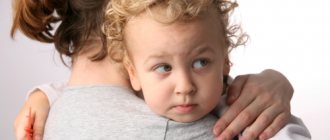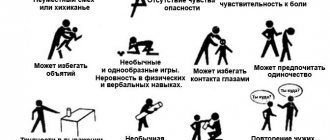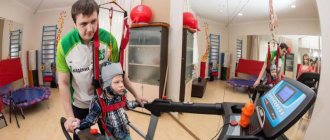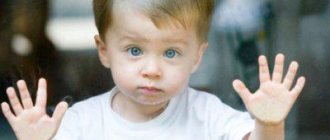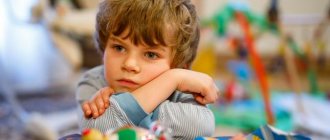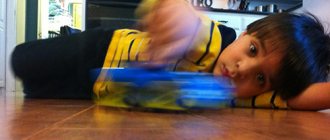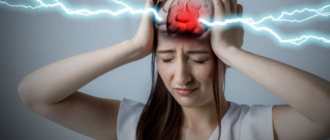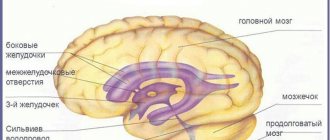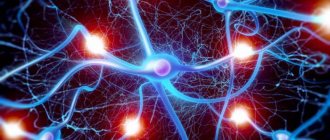Mental arithmetic, unlike classes according to the standard school curriculum, is suitable not only for healthy children, but also for those who have certain mental disabilities. How do classes affect children with autism spectrum disorders and why should you try them?
Until the mid-20th century, autism was defined as a special type of thinking, that is, people who could not interact with society were called strange and closed. More serious manifestations of autism were considered a psychiatric problem and were treated with medication, often in closed hospitals.
About the disease
In the last century, the described disease was quite rare. However, already now 1 child out of 88 children suffers, while 50 years ago this statistics was more positive - 1 in 10 thousand children. It should be noted that boys are more susceptible to this disease than girls. Most of the research on autism is conducted in the United States. In Russia, there are no official data on the number of autistic children: such a count is not carried out. Although in fact there are no fewer of them in the state than in America, where they are dealing with the disease and looking for ways to eliminate it.
Why more and more children are suffering from autism is unknown. Doctors can only say that the disease is probably caused not by one factor, but by a combination. Among the possible causes of various forms of autism are mutations in genes, damage to the central nervous system, problems with brain development, hormonal imbalances, viral infections, mercury poisoning, a large number of antibiotics, and chemical intoxication.
However, doctors have not fully figured out which of these causes actually lead to the disease. But the fact is 100% clear that a hereditary predisposition leads to autism. Moreover, during pregnancy, the development of the child’s brain can be affected by infection or severe stress, which ultimately leads to the formation of the described disease.
Why should an autistic person do Mental Arithmetic?
The traditional education system is rarely interesting to an autistic person; he will only study what he chooses. Of course, children with RDA can attend regular school, but they also need additional development.
Mental arithmetic for an autistic person is good not only because it helps to understand the basic principles of solving problems and examples, but also because it affects both hemispheres of the brain. Some doctors suggest that the problem of autism lies in poor interaction between the hemispheres, and during exercise the connections between them will be strengthened.
Your child will enjoy the opportunity to keep contact with teachers and other students to a minimum; all they need for training is a computer. In addition, possible mathematical talents will be revealed faster, because studying will be more comfortable.
Mental arithmetic classes can change a child’s life, transform it and become the foundation for the development of a future mathematician, designer, architect, engineer, artist.
Light form
How does autism manifest in a 3 year old child? Symptoms directly depend on the form of the disease.
A mild form is a problem in which, with proper and timely treatment, maximum adaptation in society can be achieved. Such children most often graduate from school or university without any problems. It is not so difficult for them to find a job and realize themselves. However, how can one determine that the form of the disease is mild?
There are criteria that influence the severity of the disease. We are talking about behavior, the ability to communicate and interact with other people (strangers).
The mild form includes atypical autism without additional diseases, in particular mental retardation, Asperger's syndrome and high-functioning autism.
Is autism a disease or a behavioral syndrome?
Autism is commonly classified as a behavioral disorder associated with congenital abnormalities of the brain.
Some psychiatrists tend to attribute the disease to pathologies of the nervous system or to mental illnesses similar to schizophrenia.
This discrepancy in the definition of autism is due to the fact that although there are foci of organic damage in the brain, it is impossible to determine the mechanism of damage.
More and more psychiatrists believe that the emergence of autism is provoked by a whole complex of various organic and psychological problems.
Severe form
Unlike mild autism, in children 3 years of age the severe form of the disease manifests itself in very noticeable problems: the person practically does not speak, does not pay attention to people, and his behavior may be disrupted. Such children need to be treated, special educational programs carried out, attempts to correct behavior and then rehabilitation carried out. Sometimes even the most serious methods of therapy are not enough for a child to have a successful and fulfilling life. Such people become disabled.
To determine autism in children 3 years old, the doctor selects a test in accordance with the complaints. Based on the diagnostic results, atypical autism with the development of mental retardation, Rett syndrome, Geller syndrome, as well as hyperactive disorder, which develops in parallel with mental retardation, can be identified. These diagnoses are considered severe forms of autism.
Features of training
Mom and dad should know how to develop an autistic child. Autism education is based on clearly thought-out steps:
- Create a clear schedule. It is necessary to avoid unpredictable exercises and games that will frighten the child. It is better to hang a diagram on the wall in drawings so that the child knows what to expect.
- Social modeling training. Autistic children need to be introduced to emotions, motivated, and taught behavioral skills that healthy children acquire instinctively. This can be done by reading books, discussing the actions of other people.
- Using the fixation technique. Autistic people often focus on one subject, which can be used to advantage in learning. For example, if a boy loves cars, you can use them to study colors, geography using a large map, traffic rules, etc.
Signs and symptoms of autism in children
In order to understand in time that a child has problems, it is necessary to observe his behavior from an early age. This should be done by parents. It is not necessary to wait until the child reaches the age of 3 years. The very first signs of autism in children appear at the age of one and a half and two years.
Autism is a disorder that has common symptoms. Let's look at the most common ones:
- Speech. Speech impairment to one degree or another occurs in all forms of the disease. Speech may develop delayed or not develop at all. An autistic child up to one year old does not want to go for walks, constantly pronounces the same sounds and words, as a result, by the age of 2 years the vocabulary is about 15-20 words. If treatment is not started, then by the age of 3 the child will begin to have problems pronouncing these words. However, people with autism are quite creative, so they can come up with their own words, and they also have a good memory, being able to reproduce words and phrases they have ever heard, like parrots. Such people talk about themselves in the third person. They do not use names or pronouns.
- Emotional contact. The child has no desire to contact anyone, including his parents. They don’t look you in the eye, don’t want to be held in your arms, and practically don’t smile. They don't like emotional contact or physical contact. Such children are similar to blind and deaf people, since they do not notice that someone is addressing them, and besides, autistic people are unlikely to single out their parents among everyone around them.
- Socialization. If a child is in some company, he may feel discomfort and other unpleasant sensations. When an autistic person grows up, he feels anxiety in society. If someone is talking to a child and he notices it, he will probably hide somewhere. Such children do not play with others and have no friends. Autistic people enjoy being alone more, as this helps them feel less stressed about not being able to connect when they get older.
- Aggression. This is an important sign of autism. People suffering from it are capable of harming themselves and others, and any situation that upsets the baby can cause aggression. In 30% of all cases of negative outbursts, the child’s aggression is directed at himself.
- Interest in toys. He's gone. A child with autism does not know how to play with cars, dolls and other devices. Such children are not able to come up with something, since their abstract thinking is practically not developed. For example, if you ask a child to make you tea in a toy bowl, he will not disturb the air or, if there is no spoon, he will not be able to notice it. Such children can only reproduce actions that they have previously seen or heard. Many autistic people can use toys in unconventional ways. For example, spinning the wheels of a car for several hours. Some sick children may recognize only one toy and use only that one.
- Changes. Autistic children behave in a stereotypical manner; they do not like any changes. For a long time they can repeat the same thing, do the same thing. They like clear routines and adherence to rules. If something happens differently than the child is used to, for example, he has to move to another apartment, or someone puts the toys in the drawer incorrectly, then the child will behave aggressively, cry and be very worried.
Every case of illness is different, because each person is individual. Some people exhibit all of the problems listed above, while others differ only slightly from other children. With mild forms of the disease, the child will be able to graduate from school, get a higher education, find a job and even start a family. Such cases of successful behavior correction are observed in Western countries, where autism receives a lot of attention.
In some children, autism can manifest itself not only in problems with behavior, but also with the body. For example, babies may have weakened immunity, problems with the pancreas and sensory perception. Cramps may occur, and bacteria and yeast may grow in the gastrointestinal tract.
How can you tell if a child has autism?
1) He prefers loneliness, consciously reduces contact with the world to a minimum, and strives to get away from the company of children or adults if they try to talk to him.
2) The child does not use gestures or facial expressions and seems completely emotionless. In other people, he also does not distinguish between emotions and changes in psychological state. If you yell at a child, it will not change anything, he simply will not understand that you are angry.
3) A little autistic person will react violently to any change in the usual state of the surrounding reality. The child has rituals that cannot be interrupted; things stand in certain places and cannot be moved.
4) There are problems with speech. The child either has a delay in speech development, or simply prefers not to contact the world through voice or writing, but at the same time is absolutely developed for his age, and sometimes is ahead of his peers.
Autism spectrum disorders, unlike most childhood diseases, do not have clearly defined symptoms. A child will not necessarily show all the signs of autism. Doctors divide RDA into 4 types.
| 1 type | These children have no contact with the outside world. The first signs of the disease can be noticed a couple of weeks after the birth of the baby - the child does not catch people’s eyes, does not smile at his parents. In the future, he will not ask to be held, it will be difficult even for his family to interact with him |
| Type 2 | Children with this type of autism are more receptive to the world around them; they do not reject it, but use it selectively. The child will have favorite foods, games, activities, rituals that cannot be changed or interrupted. Otherwise, parents and those who dare to disrupt the usual course of things may face not only hysteria, but also aggression from the little autistic person. |
| Type 3 | The most unpleasant type of illness for both the child and those around him. Children have conflicts and tend to cause harm and self-destruction. Often mystical, scary or repulsive motifs appear in a child’s drawings or rituals. Contacts with the world are minimal |
| 4 type | Very vulnerable children who are stressed from interacting with the outside world. Parents will have to provide the baby with a constant feeling of safety and comfort; accept all his rituals and follow his desires. Otherwise, the child may become ill, become withdrawn, or harm himself. |
Diagnosis of autism in children
Many parents who notice problems in their child may be faced with the question of how to define autism. In order for a doctor to allow the development of this problem in a child, there must be at least three problems: difficulties in communication, stereotypical behavior and lack of desire to communicate. As mentioned above, all symptoms appear before 3 years of age in most cases. In order to make an accurate diagnosis, the child is taken to a neuropsychologist who conducts appropriate tests.
The doctor does not monitor the child constantly. Parents do this and then tell the doctor. When talking with parents, the doctor may use generally accepted tests that help determine the child’s condition. We are talking about the “Childhood Autism Rating Scale”, “Autism Observation Scale” and so on. Such tests are sufficient to establish a diagnosis. And then the question arises about whether it is possible to cure autism in a 3-year-old child. And it all depends on the form and symptoms of the problem.
Support and rehabilitation of children with autism
Modern scientists have not yet created drugs that can cure autism or relieve its pronounced symptoms. Some experts recommend using certain dietary supplements, diets, and manual techniques, which can be effective under certain conditions. However, there are no proven treatments for autism yet. Doctors can only prescribe certain sedatives for aggression and increased excitability.
What can help a child's development:
- Development of speech skills under the control and with the help of a speech therapist-defectologist.
- Special games for children with autism: joint activities in the same space with the child (for example, lining up soldiers on the floor or building a house on a table); when speech disorders are pronounced, you can use comics, cards with pictures, and written language for communication, if the child knows it.
- ABA therapy, designed specifically for autistic people, improves communication skills and learning abilities.
- Floortime program: in this program, interaction with the child is built on the basis of his interests and encouragement; this is an attempt to involve the child in “our” world without violent methods.
- TEACH methods, where a comfortable environment is created for the autistic person, in which the child will find familiar rituals and consistent actions without irritating and dangerous objects.
- Expert
- Latest articles
- Feedback
About the expert: +MAMA
We are the friendliest site for moms and your babies. Questions and answers, unique articles from doctors and writers - we have it all 
- Oligohydramnios during pregnancy -
- A newborn's eye is festering -
- When does the fontanelle close in newborns?
- Nutrition after childbirth -
- Headache during pregnancy -
- How to lose weight after childbirth -
- Second screening during pregnancy -
- Precursors of childbirth in multiparous women -
- How long do newborns sleep?
- How to remove belly fat after childbirth -
See all
Diagnostic problems
Unfortunately, to find a doctor in Russia, you will have to try hard, since in our country there are few specialists who are trained to treat the corresponding disease. It often happens that the pediatrician does not notice anything strange in the child, and the parents do not tell the really important symptoms. Ideally, if there is a suspicion of autism, you need to undergo a medical commission, which should include a neurologist, psychiatrist, psychologist and a doctor on the autism spectrum. A teacher from the kindergarten the child attends is also invited.
Another feature of Russian medicine is confusion in diagnoses. Some cases of autism are not so advanced that doctors can confidently make the correct diagnosis. This problem is quite serious because autism needs to be treated differently from mental retardation or schizophrenia, the symptoms of which are often similar to those of autism in a 3-year-old child.
Parents should take this issue as seriously as possible, since if the child is not treated from childhood, then the chance that he will have a normal social life becomes less and less every year.
Autism is not a death sentence
Authors : Magazine "Seventh Petal"
A lot has been said and written about autism today. But, despite the abundance of information, parents with a child diagnosed with RDA still have many questions. In addition, for a long time, experts could not reach a consensus on the classification, definition of symptoms, causes and treatment of RDA. And now there are many points of view on these issues. We asked Irina Baranova, a pediatric pathopsychologist-diagnostician (Rostov-on-Don), to talk about her view on the problems of autism and answer common questions from parents.
What is hidden behind the letters “RDA” in a child’s medical history? First of all, EDA (early childhood autism) is manifested by the child’s isolation from the environment (primarily people) and immersion in his own world, created by him from individual objects, sounds, phenomena, etc., feasible for his adaptation to reality and “ survival" in it. This syndrome reflects a special form of mental defense from the entire diversity of the external world - pathological defense, i.e. causing damage to the defender himself, in this case due to the suspension or distortion of all mental development. In the classification of diseases in psychiatry, this syndrome is classified as one of the forms of developmental delays. This means that, in principle, this condition is surmountable (unlike, for example, underdevelopment). This is where the main contradiction arises. The fact is that until recently, autism as a symptom (syndrome) was considered by doctors as a combination of behavioral reactions and motives accompanying such a severe and complex mental disorder as schizophrenia. Subsequently, it turned out that this was not quite the right approach. The inability to communicate”, characteristic of autistic people, is accompanied by the need for these people to communicate. That is, the fear that gave rise to this pathological defense did not destroy the main thing - the need to interact with the world, with people, but blocked its spontaneous manifestation. So, in those cases where the core of mental activity (i.e., the motivational sphere) remains intact, we are dealing with RDA of non-processual (i.e., not schizophrenic) origin. And this fundamentally determines the prognosis of the condition.
Unfortunately, over the past 10-15 years, this syndrome has spread on a catastrophic scale. As a specialist diagnostician, I have to deal with RDA from two to six times (!) a week, making decisions about the nature, severity and, most importantly, the origin of the symptom. Recently, RDA syndrome has begun to appear in children with organic central nervous system insufficiency of varying degrees of severity (sometimes very minimal, sometimes significantly pronounced - for example, with concomitant disorders of speech, attention, activity). That is, if the central nervous system is not stable and strong enough, defense methods are activated, including autism. This protection provides the child with a degree of functioning that is accessible, feasible, and maintains relative emotional balance, since the environment is perceived by him primarily as dangerous and aggressive. Parents are usually concerned about the causes of organic central nervous system failure in their child. In the case of RDA, there are many reasons, and many of them are global (ecology, urbanization, etc.). My personal experience as a consultant shows that internal factors are not in last place - the attitude towards the child in the family, the relationship between parents and much more. The success of the prognosis largely depends on how close the parents (primarily the mother) are to the child, how accepting they are of their child despite its characteristics, and how involved they are in the process of upbringing, rehabilitation, and education. It is not enough to simply bring a child diagnosed with RDA to a doctor who will prescribe a list of medications, or to a psychologist who will deal with him. In this case, the cooperation of parents and professionals is more important than ever, and a large part of the success depends on parents.
1. How can you tell if your child has autism? At what age can this diagnosis be first made? The main difficulty is that it is difficult to name the average age at which manifestations of autism can first be noticed in a child. Sometimes you can suspect EDA (early childhood autism) in a three-month-old baby, but more often neither parents nor specialists notice anything strange or unusual until the child is one year old. The age at which the first symptoms of RDA appear varies among children, as do the symptoms themselves. This depends both on the severity of autism and on the reasons that cause and give rise to it - and there are many of these reasons, and in each case they are different. However, an attentive and observant mother may suspect something is wrong already by the middle of the child’s first year of life, although it is possible to speak more or less definitely about autism only by the end of the second year. Obviously, the sooner parents, having noticed peculiarities in the baby’s behavior, begin to consult with specialists, the better. A child with RDA who has been worked with from an early age has a high chance of complete rehabilitation and a favorable prognosis. Therefore, despite the fact that the diagnosis of “autism” cannot be made until the child is two to three years old, correctional and pedagogical work if there are concerns should begin as early as possible. In situations where the risk of occurrence and development of RDA is increased, it is all the more important to promptly seek help from specialists (sometimes it makes sense to do this during pregnancy or even at the planning stage). In this case, the chances of success are as high as possible. Establishing diagnosis. A specialist can make a preliminary diagnosis of RDA by the end of the first year (the so-called “suspicion of RDA”). An official, updated diagnosis can be made no earlier than three years, after examination by at least two specialists: a neurologist (or psychiatrist) and a pediatric pathopsychologist.
2. What in the baby’s behavior should alert parents? First of all, the baby’s reactions to environmental stimuli are indicative. In infancy there are few of them, the main ones are important: food, light, sound, temperature and humidity of diapers, clothing. The reaction to loved ones surrounding the child is especially important. Food. It is worth paying attention to how the child eats, his behavior during feeding, and how harmoniously the digestion process occurs. Is the baby able to suck, does he get enough to eat, does his body absorb breast milk, formula (and subsequently complementary foods)? More often we encounter the fact that breastfeeding in such children is impaired or absent for various reasons. Autistic people generally have a special, selective attitude towards food, and the first manifestations of this selectivity can appear in infancy. Reaction to light, sound, wet diapers. Normally, the baby reacts to wet diapers and sudden changes in light and sound: crying, groaning, tossing and turning. The absence of any reaction or its extreme severity should alert you. Typically, children who are subsequently diagnosed with autism had poor or even no response to external stimuli during infancy. The child may experience short periods of sharply aggravated reactions, but these, as a rule, are quickly replaced by inhibition. Close people. In children who develop normally, at a certain age a normative mental reaction appears, called the revitalization complex*. When the baby appears with his mother or any loved one who is allowed to care for him, he demonstrates joy and tries in his own way to enter into a “dialogue” with the adult: he fixes his gaze, “gesticulates,” waves his arms and legs as if trying to jump, and smiles. This is the first manifestation of psychic contact in social form. The age at which the revival complex appears, as well as the ways of expressing it, may vary (this depends on the child’s temperament), but if there is no reaction at all, then you should be wary - this indicates the presence of problems.
| * The revitalization complex is a concept introduced in the 20s. last century N.M. Shchelovanov, denoting various motor reactions of a baby in the first months of life to various influences (an adult’s face, beautiful toys, pleasant sounds), by which one can judge the experience of positive emotions. Such reactions include: freezing and visual concentration on the object of perception, smiling, sounds made, motor animation. The formation of the revival complex occurs starting from the third week of life: first, freezing and concentration appear when visually fixating an object or sounds, then a smile, vocalization and motor revival. At the age of three or four months, the revitalization complex changes into more complex forms of behavior. In addition to the expression of emotions, the revitalization complex acts as a function of the infant’s communication with adults, as evidenced by the fact that, depending on the situation, the infant can enhance or inhibit one or another of its components. Thanks to him, a strong connection between the child and the adult is established and his need for communication is satisfied. The absence of a revitalization complex in infancy is a diagnostic sign of delayed mental development of a child. Developmental psychology. Dictionary |
3. What are the main signs of autism? Limitations both in the ability and in the need for communication of varying degrees of severity, the originality of games and interests, actions and actions that are strange from the point of view of habitual perception, fears, uneven intellectual development: advance in the development of complex skills and lag in simple ones (for example, a child reads , but can’t draw).
4. How to plan a day for a child with RDA? The daily schedule of a child with RDA may be practically no different from the schedule of his peers. However, when consulting parents, I usually emphasize that autistic children have a greater need than other children for discipline and a clear daily routine, which includes, in addition to walks, eating, sleeping, and developmental activities. It has been proven that the regime, its optimal for a given child (i.e. adapted to him) harmonious rhythm, calms, gives a feeling of stability and treats fear.
5. How does an autistic child perceive the surrounding reality? The fact is that an autistic child experiences a significant part of the impressions and sensations that the world around him brings as painful. Those external irritants and stimuli that the baby perceives do not have time to convey their specific information, but only bring nonspecific pain stimulation. This is what determines the child’s reaction - fear, withdrawal. Later, the autistic person begins to adapt to the world - slowly, piecemeal, perceiving only individual properties and qualities of objects. This is why autistic people see a distorted picture of the world. Despite the fact that the senses are most often not impaired and the signals are perceived adequately, at the stages of processing they fail to integrate into holistic images. Therefore, the standard perception we are accustomed to is not formed in autistic people (which is why they are often suspected of being deaf or blind). This determines one of the approaches in correctional pedagogical work - orientation toward holistic imaginative perception.
6. Do I need to follow a special diet for a child with RDA? If so, what should the diet be and in what cases is it needed? They follow this “diet” themselves. In the traditional sense of the word, this is not a diet, but a familiar set of tastes and sensations. An autistic child protects himself from new “food experiences” by becoming selective in food, and this is also one of the symptoms of EAD. Overcoming food selectivity is a difficult and time-consuming task. The main thing is to understand that over time, the baby’s food repertoire will still expand. This means that from time to time it is necessary to offer foods (dishes) that are currently “excluded” for the child, to have a variety of food next to him so that he can see it and smell it. The development of RDA syndrome in connection with the genetic Martin-Bell syndrome, when the absorption of B vitamins is impaired, deserves special consideration. In this case, it is the diet that will have a therapeutic effect. The psychiatrist you contact for your initial consultation will decide whether you need additional genetic counseling. However, parents can contact a geneticist on their own, without waiting for a referral from a specialist.
7. Can vaccination cause the appearance of RDA? Is it worth vaccinating a child who has already been diagnosed with early childhood autism? There is evidence that in some cases, RDA can develop precisely after vaccination. It is not recommended to vaccinate a child who already has this diagnosis, although in each specific case an individual consultation with a neurologist is required.
8. How to socialize such children? Socialization of a child with RDA should begin in preschool institutions, since it is being in a children's group that will allow the child to identify himself as an individual and part of society. It is from kindergarten that the socialization of a little autistic person begins, his entry “into the big world.” In order to make it easier for a child to adapt to the surrounding reality later, already in preschool age he needs a society of peers. If we talk about our city, it is recommended to choose a speech therapy kindergarten or a kindergarten that has a speech therapy group (there are such in every district). On the other hand, parents can place their child in any childcare center (preschool institution), where teachers and specialists will be aware of the child’s problem and are ready to make appropriate compromises for a pupil with RDA. In the medical record in kindergarten, your baby will write: “Delayed mental development in the emotional-volitional sphere.” However, the most important thing begins after you have chosen a kindergarten, discussed with the head and teachers the preferences, habits, and routine of the child and enlisted their support and assistance. A very important and difficult period begins for your baby - adaptation to kindergarten. Try to do everything to make it go smoothly. Start bringing your child for walks in kindergarten (once or twice a day): your baby will get used to other children and learn their names. During the same period, the child should be introduced to the group room (at a time when no one is there). This can also be done at a time when all the other children are out for a walk. In this way, we provide the child with the opportunity to get used to the furnishings in the group, and the teachers - to establish contact with him individually. At this stage, it is recommended to take photos of children, adults - everything related to the kindergarten. The child, looking at the photo at home, will gradually get used to his new environment.
The next step is to attend morning group classes. Educators should be warned in advance that your child should not be insistently seated in a general circle: he should be given the opportunity to be anywhere in the group, provided that he behaves quietly. And only after the baby is sufficiently accustomed to the new environment and feels comfortable, try leaving him for an afternoon nap. If adaptation goes well, it will eventually be possible to leave the child in kindergarten in the afternoon. The main thing is not to rush. What is important here is not the speed with which the baby adapts, but the success of this adaptation. After the child has gotten used to kindergarten and has become accustomed to the new conditions, teachers will strive to establish interaction in a small group (that is, organize joint activities between the little autistic child and another child). Naturally, for adaptation to kindergarten to be successful and for a child with RDA to feel comfortable, the participation and active work of all kindergarten employees is necessary: teachers, psychologists, speech therapists, even nannies. But no less (and perhaps more) important is the help of parents whose children go to the same group. It’s great if mothers and fathers of other kids understand that for their own children, interaction with a special child is no less important than for a little autistic child - this is not just a manifestation of tolerance and sympathy, but an important aspect that shapes valuable character traits and communication abilities of their children.
9. How should such children be raised and educated? Together with everyone, but taking into account their characteristics. I explained above how to adapt a child to a kindergarten group (using the example of adaptation to a kindergarten). Let me emphasize once again that there is no need to rush under any circumstances. Even when the child is able to remain in a children's group (in kindergarten, school, in a development group), he needs to be given the opportunity to maintain an acceptable distance for him (for example, not sit with everyone else at the tables, but be at a distance, but hear and see everything what is happening - autistic children can do this very well). At the same time, the baby must be gradually taught to comply with disciplinary requirements (do not shout, do not disturb others). There is no need to put pressure on the child, but you should gently try to ensure that he can follow the basic rules of the preschool educational institution. Otherwise, you may unfortunately be asked to leave the group.
10. Can such children attend regular public preschool educational institutions (kindergartens and schools)? Yes, as described above
11. How will the appearance of such a child affect other children, what will be their attitude towards him? Will the behavior of peers be an additional stress-forming factor for a child with RDA? It all depends on what the adults say. If you don’t comment in any way on the behavior of a child with RDA, then other children perceive their classmate as ill-mannered, disobedient and complain that “he can do it, but they can’t.” But if you tell the children that he is like this because of fear, explain how to communicate with him, then the children are happy to help and rejoice in their common achievements. As emphasized above, in this case, the joint work of adults (preschool employees, parents) is important and simply necessary. The fact that the correct adaptation of such children into ordinary groups is beneficial for everyone has been proven by world practice.
12.Is it worth attending developmental and correctional classes? If so, what should you prefer - group work or individual work? Of course it's worth it. It is recommended to start with individual work with a teacher, then move on to classes in a microgroup (2-3 people) and, finally, in a regular group.
13. Is there necessarily a decrease in intelligence in autism? No, not necessarily. But still, thinking is formed outside the box. Preschoolers diagnosed with RDA are characterized by uneven, distorted development. The question of intellectual competence arises throughout the entire period of a child’s growth. Despite the fact that intellectual development in autistic people may be delayed and the intelligence of such a child can decrease at any time, there is no need to be afraid of this. This can be fixed.
14. Can autism be cured? I am confident that autism can be overcome. After all, as mentioned above, this is not a disease as such, but a form of pathological mental defense. If a person managed to adapt, adapt to the world, then he was “cured.” Even psychiatrists believe that it is psychological and pedagogical correction that plays the most important role in compensating for this condition. Drug treatment is justified only in the initial stages of therapy (and not in every case), playing the role of a kind of “crutches”.
15. What forms of autism exist? In psychiatry, it is customary to distinguish between autism of procedural origin and non-processual origin. The first accompanies schizophrenia, the second - all other types of disorders (most often organic failure of the central nervous system). In domestic defectology, the classification concerns the severity of the syndrome and indicates four levels (the most severe is the first).
16. Is autism a genetic disease? I don't share this point of view. We can talk about a genetic nature only in cases of autistic symptoms in some syndromes, in particular Martin-Bell syndrome.
17. Could environmental toxins or chemicals like mercury cause autism? They can - as nonspecific agents that affect the central nervous system.
18. What is the prognosis for people with autism? Will a child with autism be able to get married and live independently? This syndrome can be completely overcome. It all depends on the integrity of the approach to rehabilitation, the causes of autism, and the severity of the syndrome. In any case, parents should know that if their child has been diagnosed with RDA, this is not a reason to despair and give up. Currently, the diagnosis of “autism” is not a death sentence, but only a reason to begin special work with the child in a timely manner.
Irina Baranova, pediatric pathopsychologist-diagnostician
Prepared by Oksana Berkovskaya
“The Seventh Petal” No. 2, October, 2009
published 06/07/2013 00:54 updated 05/22/2018 — Nervous, mental and psychological diseases, Neurology and psychiatry, Special children and their families, Families with a special child
Treatment and correction of autism in children
All methods and rehabilitation programs were developed in America. Regardless of what signs of autism are present in 3-year-old children, all ways to eliminate the disease are based on active communication and games. If the form is mild, then parents, if they take the issue seriously, will most likely be able to make the child a social person. In severe forms of the disease, problems may appear, but this is associated with the development of mental retardation and other side diseases. There are few doctors in Russia who specifically treat autistic children. But you still need to find a psychiatrist. Choose your kindergarten and school carefully. With children, behavior correction should be carried out absolutely everywhere: at the doctor, at home, in all places that the child visits. Parents need to show love and care.
To reduce the manifestations of autism in children 3 years old, you need to follow the following recommendations:
- The child needs to be taught the necessary skills for later life. For example, to teach you to brush your teeth yourself, you should often repeat this in front of him and with him. Even if the child has already learned this, repeated “lessons” should be carried out regularly.
- The child's daily routine should be clear. He himself will not violate it, and therefore parents must also comply with it. You cannot break the rules, otherwise the child will show aggression. Attempts to change the situation or habits of the baby will also lead to his rebellion.
- Try to communicate with your child more often. Spend a lot of time with him. If the baby does not react, then do not be offended. Repeat persistently the sentences, his name. There is no need to shout, scold or punish. If autism was discovered at an early age, you can hold him in your arms more often. At this age, he will not protest much, and by the age of 3 he will get used to emotional contact with his parents. If the case is difficult, then cards can be used instead of oral speech.
- An autistic child should not be tired. You need to take a break between games or activities. At the same time, at such moments, leave him alone. Play sports with your child to improve his physical fitness.
- Don't suppress initiative. There is no need to rush or force you to do something. You need to have a lot of patience to raise a child. An autistic person should perceive home as a place where he is comfortable and calm. The same should apply to parents. The important task of mom and dad is to make sure that the baby is not afraid of them and notices them.
- The child needs to be taken outside more often, and be sure to be taken to kindergarten and school. At first, the baby will resist, but after some time he will still understand that he can talk to others, play with them, and this is also exciting.
How to properly develop a child with autism?
Parents should take into account the developmental characteristics of autistic children. They are quite trainable if you develop them from an early age. All efforts are aimed at restoring social adaptation skills with the help of special exercises and educational games.
Since every autistic child is special, a correction program is selected individually. But in addition to developmental activities, it is necessary to ensure that the child has proper contact with his parents. When communicating with your baby, panic and indifference should be excluded.
The full development of an autistic person will be facilitated by:
- Full acceptance of the baby's condition.
- Drawing up a task plan for each day.
- Daily teaching of the child the rules of behavior in everyday life and immoral aspects.
- Providing comfortable conditions for the child.
With the help of developmental exercises, an autistic child will learn not only to find contact with other people and the external environment, but also to experience everyday life. Classes will help the child find his place in the world, stop being afraid in new conditions, and adequately accept the changes around him.
Autism Medication and Nutrition
When the doctor has tested for autism in 3-year-old children, interviewed the parents and made a diagnosis, treatment must be started immediately.
Autism is rarely treated with medication because drugs will not help. They can be used when some symptoms become too dangerous, for example, a child begins to show aggression towards someone, but it is impossible to calm him down. The same applies to physical activity, depression and some obsessive desires. In such cases, doctors prefer to prescribe psychostimulants. Depending on the degree of autism, the dosage is selected, but you need to understand that in many cases it is better to try to do without such medications. They can make the situation even worse.
Medicines are also prescribed for vitamin deficiencies and problems with the gastrointestinal tract.
Autism symptoms can be alleviated with a special diet. To date, many studies have confirmed that the disease is associated with metabolic disorders. These children have been shown to be hypersensitive to cereal proteins (gluten) and milk (casein), so a gluten-free and casein-free diet is recommended for autism. You also need to completely get rid of those food products that contain chemicals: dyes, preservatives. Give your child less sweets. The diet should contain an increased amount of protein. In addition, it is worth giving more water to drink.
Remember that you do not need to force your child to eat something specific. If he refuses, then offer something else.
Regardless of diet, autistic people may have problems with vitamins. Often such people have a severe deficiency of most nutrients. There are also problems with the production of certain hormones and enzymes. Even with a normal diet, there can be a high concentration of heavy metals in the body.
In each individual case of the disease, it is necessary to select specific behavioral and drug treatment. Before taking any medications, you need to 100% confirm the diagnosis. You should also ask your doctor what kind of disease autism is. Symptoms on which treatment depends, manifestations - a specialist must pay attention to all this. Therefore, talk to him, maybe the chosen doctor is not the best candidate for treating your child.
When taking medications, you need to regularly monitor whether they are effective or not, since not all children are suitable for the same medicine.
Recommendations for parents of an autistic child
- Practice visual communication. There is a special PECS system that allows you to communicate with your child using cards with images.
- Express your thoughts as simply as possible. For example, it is difficult for a child to understand a long sentence, so it is necessary to express it concisely - “Walk”, “Read”, “Come”.
- Avoid ambiguous phrases. The child will not understand if you say that you have a headache. He will take everything literally.
- Learn to wait. Children with autism take much longer to think about things, so after you ask them something, it may take them a while to answer or complete an order.
Features of communication with autists
If your child is autistic or you know anyone with such a disease, then it is important to be able to talk to them. You must understand why you should do this and not otherwise. It is enough to follow simple rules of communication:
- Offers. They should be short and clear. Then it will be easier for the child to understand what you are saying and what you want. It is easier for them to perceive letters, so they can communicate using pen and paper.
- Although these children have problems with abstract thinking, they have figurative thinking. Therefore, to make your child understand you faster, draw a diagram or picture.
- The above describes the symptoms of autism in a 3-year-old child, one of which is problems in communication and difficulties in forming sentences. Therefore, give your child time to think. There is no need to urge or shout. You should not ask multiple questions at once. If the child feels calm in a conversation with you, then communication will develop as well as possible. Be patient.
- Under no circumstances should you be offended by silence.
- Start the conversation with an affirmation. There is no need to immediately ask how things are or what the child is doing. Better tell me something. Slowly, in short sentences. And only then proceed to easy questions.
- In your speech, use the simplest and most accessible words possible. There is no need to express the same thought in different ways. If the child does not understand something, it is better to repeat the same sentence, so it will be easier for him to perceive the information.
- Signs of autism are sometimes already noticeable at one or two years old, so if you are already wondering how to correct behavior, then try to win the child’s favor. Talk to him about topics that interest him. As a rule, such children have only one hobby, and therefore they become experts in this matter. Talk to them about it. This way, not only will the child become comfortable with you, but you will also allow him to open up, and you yourself will learn something new.
- Attention to such children should be moderate, but do not let the child feel unwanted. Find a way of care that is convenient for you and will not irritate your baby.
- To ensure that your child speaks to you accurately, choose a time and place that is comfortable. Then the baby will most likely be able to carry on the conversation.
- Autistic children do not understand hints, jokes, irony, or metaphors. Therefore, your task is to speak directly and clearly.
How does autism affect development and learning?
An autistic child develops differently from other children. He has difficulty accepting standard forms of training, but is sometimes capable of incredible self-development in his chosen field. Parents need to understand that the attention of a little autistic person is scattered, he can get carried away with something, but gets tired quickly.
It’s interesting how a child’s memory works. In his head, information is stored in blocks. That is, he cannot establish a cause-and-effect relationship, but he can turn on this or that memory at the right moment and use it. This is why any violation of the established order of things is so unpleasant for children with RDA; they simply do not understand what to do now, because a situation has just arisen that he knows nothing about.
Autistic thinking is bizarre, as is their imagination. They can plan their actions, find common features in objects and phenomena, but at the same time they are rarely able to retell or fantasize the story. They can talk to themselves for hours, sing songs, recite poems, but if you try to get your baby into a dialogue, in response you will receive the same phrases from your favorite cartoons or songs that do not fit the context. They perceive speech, but react in their own way; sometimes there may be a response to close people, but strangers face complete rejection.
Why are autistic children born?
Scientists have been trying to find an answer to this question since the 20s of the 20th century, when the first studies were carried out. Today we can say that the cause of the disease is complex.
Genetic disorders
First of all, the genetics of families with autistic children were studied.
Scientists monitored more than a thousand families, in which there were several healthy children and one with autism.
Their DNA was assessed using blood samples. Scientists set themselves the task of detecting duplication or deletion of different sections of DNA.
Episodic, random and non-inherited copies are called de novo VVC in scientific language. It was they who were analyzed, and it turned out that the new VVCs actually exceed the normal threshold in sick children.
It was revealed that chromosome 7, which is responsible for the sociality of the individual, had duplications in sick children. Thus, it was proven that gene failure affects the development of autism.
During the research, a significant pattern was discovered. Girls are more susceptible to autism due to genetic reasons than boys.
Minor changes in the DNA pattern do not lead to the development of the disease in girls, although they can cause minor behavioral deviations that have a tinge of autism. It takes really serious genetic disorders to give birth to a girl with autism. But boys, unfortunately, turned out to be much more vulnerable to even minor deviations.
This provided the evidence base for the development of a genetic combination analysis method that has since been used to identify networks of genes affected by rare variations in autism.
Maternal diseases during pregnancy
During the process of bearing a fetus, any disease of the mother can leave a negative mark on the development of the child. Many studies have been conducted on the risk factors of pregnant women, and three main causes of deficiency or excess of hormones due to which autistic children are born have been brought to the forefront.
Iron deficiency. Mothers whose children suffer from autism did not consume enough iron during the fetal development of the baby.
Anemia in pregnant women causes tissue hypoxia and delayed development of the child, and in the most severe cases can lead to perinatal mortality.
Such children are born with a deficiency of body weight, they have neonatal jaundice for a longer period of time, the umbilical cord later falls off and heals more slowly.
But if this condition, although with great difficulty, is corrected, then the delay in the mental and motor development of a child born from a mother with iron deficiency anemia is irreparable.
Metabolic disorders - obesity, diabetes (especially insulin-dependent) and hypertension. Serious metabolic disruptions in a pregnant woman cannot but affect the development of the fetus, primarily at the stage of brain development. It has been proven that these disorders pose a huge danger to the mental development of the unborn child. Study participants who consumed normal amounts of nutrients through food and medications had a lower than average risk of childhood autism.
Low maternal immunity, viral diseases. One of the causes of autism is the mother's reduced immunity during pregnancy. In the chain of disorders leading to autism in children, an important point is the health of the mother, in particular her immunity. The fetus's immunity cannot cope with pathogens that attack the mother's body, thus increasing the risk of negative effects on his brain.
Particularly dangerous:
- rubella;
- cytomegalovirus;
- roseola;
- varicella (herpes virus type 3, or herpes zoster);
- herpes type 2;
- herpes type 6.
Brain neurotransmitters are involved in the development and functioning of nervous processes. Viral processes affect the central nervous system and its activity. Children diagnosed with autism exhibit excessive production of antibodies to myelin basic protein and neuronal axonal process protein.
Mother's age over 35 years
With age, the problem of conceiving and bearing a child arises due to the annual decrease in the number of eggs in women.
From the moment of birth, a woman has about 500 thousand eggs, and they are lost every month.
Children born to women closer to 40 years of age, as well as those born from a breech position, are twice as likely to suffer from autism, American scientists from the University of Utah have proven.
In addition, researchers say that older children are more likely to suffer from autism. In the first case, the risk of autism is 1.6 times greater than in children born to a woman under 35 years of age, and in the second case, in nulliparous women, the risk increases by 1.8 times.
If either spouse is between 35 and 39 years of age, the risk of having an autistic child increases.
If both parents are over 35 years of age, the risk is the same as if only one of them is at that age. However, if one parent is under 35 and the other is 40 or older, the additional risk of autism is greater if the mother is over 35.
Therefore, women over 35 years of age who want to become a mother are advised to be examined before and during pregnancy for fetal malformations.
But early birth is also a high-risk area, since the young mother’s body is not yet fully mature for procreation.
Hormonal imbalance
Deficiency of adrenaline and norepinephrine. Their insufficient production provokes the destruction of the child’s psyche.
Parents observe a weak emotional response to what is happening, a lack of empathy for others and interest in establishing contact with peers, and a depressed state.
Oxytocin fluctuations. The role of this hormone in the regulation of the estrous cycle, pregnancy and lactation is well known.
Its participation in the mechanisms of attention, recognition of familiar faces, short-term memory and social behavior has been revealed. Its deficiency also manifests itself accordingly.
Deficiency of thyroid hormones during pregnancy – primarily thyroxine. The hormone is responsible for the migration of brain cells during embryonic development, and in the future for human social adaptation. Lack of thyroxine leads to underdevelopment of certain areas of the brain.
All these data give hope that autism can be corrected medicinally with the help of hormones.
Bad ecology
Research on this topic has been carried out repeatedly, and each time it has been confirmed that air oversaturated with harmful exhausts leads to pathology in the development of the fetus.
In laboratory mice, the lateral ventricles of the brain increased 3 times, which interfered with the development of other parts of the brain, and the amount of glutamate in the gray matter also increased.
The described effect had worse consequences for males than for females.
Observations of children from environmentally disadvantaged areas confirm that they developed autism much more often than their peers living in cleaner areas.
Vaccinations and vaccinations
Anti-vaxxers are convinced that there is a direct connection between autism and vaccinations.
They claim that in many children, manifestations of autism began some time after vaccination.
The substance that is blamed for the onset of autism after vaccination is called thiomersal.
According to opponents of vaccination, thiomersal is toxic to the central nervous system and provokes the development of autism.
Thiomersal contains ethyl mercury. However, this substance is eliminated by the body quickly enough and does not have time to affect the development of the child.
In 1999, vaccine manufacturers agreed to reduce the amount of thiomersal in vaccines to a minimum, and ongoing national health audits in developed countries are carried out every few years.
The supply of thimerosal vaccines was expected to run out in 2002.

